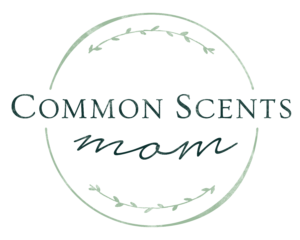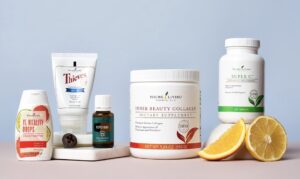Do you know the difference between a fatty oil and an essential oil?
Could the lavender oil you see on the shelf at the health food store (labeled as “pure”) possibly be cut with synthetic chemicals, diluted, or extracted from the plant using chemical solvents?
Does it really matter that much what brand you buy, as long as it smells good?
Should you ever ingest essential oils?
I don’t think most people understand what essential oils are, or exactly why quality matters. This lack of knowledge could create a real safety issue. Read on because there is a lot of misinformation out 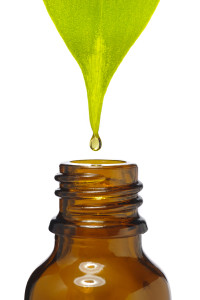 there.
there.
Fatty Oils vs. Essential Oils
Fatty oils come from nuts, seeds, and vegetables (think olive oil, coconut oil, avocado oil etc.). These are good for cooking, moisturizing your skin, and they are perfect for diluting essential oils. Many are very nutritious! But, they are not volatile, they are not aromatic, and, unlike essential oils, their long chain molecules are too large to penetrate the skin, which is why they feel greasy.
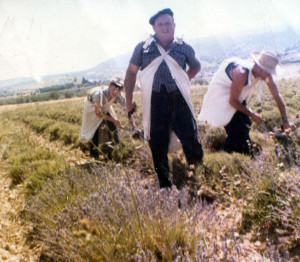 Essential oils are the liquid, volatile, organic compounds that come from the flowers, shrubs, trees, roots, and bushes that God gave us at Creation. These are aromatic oils which have been carefully extracted through distillation or cold expression; and, they are highly concentrated. The fact that they are volatile means that they pass off readily into a vapor – that’s what makes them aromatic.
Essential oils are the liquid, volatile, organic compounds that come from the flowers, shrubs, trees, roots, and bushes that God gave us at Creation. These are aromatic oils which have been carefully extracted through distillation or cold expression; and, they are highly concentrated. The fact that they are volatile means that they pass off readily into a vapor – that’s what makes them aromatic.
Because they are so concentrated, just a drop or two is usually all you need. And the molecules of essential oils are so small they are able to penetrate the skin and get into the blood stream. That’s why one drop of lavender or Peace & Calming on the bottoms of your feet can help you relax and settle down for a good night’s sleep.
Wisdom should always be used in dealing with essential oils because they are very powerful; but when you’re using a truly pure product that has not been cut with other chemicals or distilled using solvents etc. they are very safe and effective – and honestly, amazing!
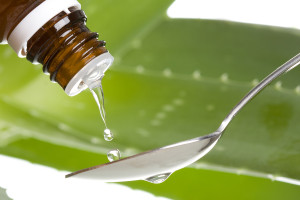 Don’t Try This at Home, Folks!
Don’t Try This at Home, Folks!
The reason that I feel so strongly about quality, and adamantly stress the understanding that most essential oils on the market are NOT therapeutic grade (by the specific definition I give at the link below), is because I believe ignorance in this area is a crucial safety issue for families.
“Dilute Properly” – “May Irritate Skin” – “Not for Internal Use”
I can use many of my Young Living oils internally (with wisdom) on myself and my children without fear because I trust their purity. I’ve seen the dedication. I’ve visited the farms and watched the distillation process. I’ve witnessed the extensive/stringent testing that goes on. I’ve listened to the passion in Gary Young’s voice, and witnessed his strong convictions on purity and quality.
To me, trust makes all the difference in the world. If I’m using essential oils because I care about my family’s health, then it makes sense that I need to be able to trust the purity and efficacy of what I’m using on and in their bodies.
“But I Can’t Afford the Good Oils!”
Do you realize that if I put ten drops of lavender in a bottle of sweet almond oil, most people would smell it and think it was a “pure” bottle of essential oils? They wouldn’t know the difference. That’s what often happens. People believe they’re getting a “great deal” on their $7.00 bottle of lavender; when, in fact, they just spent $7.00 for ten drops of an inferior essential oil infused in a fatty oil that will soon go rancid.
In addition, it is likely that even those ten drops have no therapeutic value, and may be adulterated with synthetics! In this case, they are getting ripped off!
Do some research. You will find that most essential oil companies are simply brokers. They’re buying their oils from various sources around the world in barrels, and then bottling it themselves. Most oils are produced for the fragrance industry, so people don’t care much that they’re cut with other chemicals.
It is scary to think people may try to use those same oils internally or on their children in the same way I’m using Young Living oils. This is why we stress quality! It is truly a safety issue!
Can Essential Oils be Ingested?
It depends on what brand you’re using and what oils we’re talking about. My husband puts a couple of drops of Young Living’s peppermint in nearly every glass of water he drinks. He loves it!
I cook with my essential oils, put them in my throat spray recipe, add them to orange juice, and flavor my toothpaste with them! But we would never do any of those things with any other brand of oils! I’m not interested in putting perfume in my food. I want the real deal.
In fact, be sure to check out my Spicy Hummus recipe, which contains the essential oils of lemon and black pepper. Yum!
Red Flags
Most essential oils on the market are not “therapeutic grade,” and most are not 100% pure, regardless of how they are labeled. The problem is that these terms are not regulated by anyone. So, all I can do is tell you what WE mean when we use them. Young Living is the only company with the Seed to Seal guarantee!
Here are just a few red flags to check out. Be a label reader. And, regardless of whether or not the label says “100% Pure” (since we know that means nothing), when you see any of the following warnings on your bottle of essential oil, ask questions! Do your research:
1. DO NOT INGEST – If a bottle of food-based oils (cinnamon, peppermint, oregano etc.) is labeled this way, that is a red flag to me. It could be a labeling issues, but check it out.
2. DO NOT APPLY TO SKIN UNDILUTED – Certain “spicy” oils should be diluted, but many YL oils can be applied neat (undiluted). If a mild oil like lavender or frankincense has this type of warning I would beware.
3. $$$ – Quality essential oils cost money to properly cultivate and distill. If a bottle of lavender costs only $5.00, you can bet it is either synthetic, cut with a carrier oil (which means you’re getting ripped off), or it’s very poor quality.
4. EXPIRATION DATE – Properly stored essential oils (excluding citrus) do not “go bad.” If an essential oil has an expiration date, it could mean it is cut with a carrier oil (which will eventually go rancid).
While some people have sensitive skin, everyone has sensitive eyes. So, what do you do if you accidentally get essential oils in your eyes? Since essential oils and water do not mix, you need a substance that is safe to use in your eyes and that will quickly emulsify the essential oil, allowing water to quickly flush it all away.
The answer is milk or cream. If you get essential oils in your eyes, quickly flush the eye with milk or cream until it stops burning. This should happen almost immediately. At that point, you can flush the eyes with fresh water to remove the milk.Some aromatherapy authors advise using a fatty oil in the eye; but, while this may work for the skin, in my opinion, it doesn’t remove the essential oil quickly enough from the eye. And while it may not hurt, it’s not fun to have olive oil in your eye either.
Spicy Oils and Sensitive Skin
Certain oils are considered “spicy” or “hot.” These oils should be diluted for most people. A good place to first test them out is on the bottoms of your feet. That being said, there are “spicy” oils that everyone in our family (including children) are able to use neat (undiluted) without a problem.
So, sometimes it depends on the person’s skin sensitivity, as well as to what part of the body the oil is being applied. Everyone’s skin type is different, and essential oils are powerful; so if you use an essential oil that seems to irritate or burn your skin, you should dilute the oil immediately by rubbing a carrier oil (olive oil, almond oil, or plain vegetable oil) into the spot. This dilutes the essential oil.
Don’t use water, as oil and water don’t mix. Once you’ve emulsified the oil this way, you can wash it away with soap and water; but always dilute it with a carrier oil first.
QUALITY! QUALITY! QUALITY!
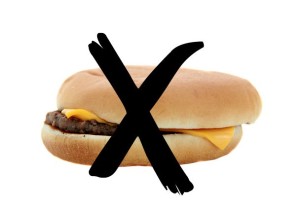 I can’t stress this enough! Quality is crucial. Here are a few other comparisons to think about when choosing your essential oil brand. Which would you prefer?
I can’t stress this enough! Quality is crucial. Here are a few other comparisons to think about when choosing your essential oil brand. Which would you prefer?
-
Fast food burger made with beef from a feed lot or… Filet Mignon expertly prepared, and made from organic, grass-fed beef?
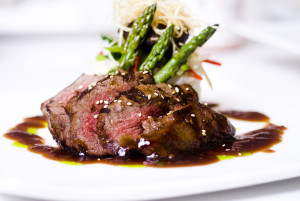
-
White flour sandwich bread smeared with margarine or… Homemade, whole grain, sour dough bread smothered in grass-fed, organic butter?
-
Sweet-treat Fizzie Zonkers loaded with red dye and artificial sweeteners or…Dark Ecuadorian chocolate-covered organic almonds with sea salt?
-
High fructose corn syrup loaded with artificial maple flavoring or…Rich, pure, “Grade A” maple syrup?
Quality has value.
While comparing companies, consider using Dr. David Stewart’s* handy list of questions:
12 Questions to Ask an Essential Oil Company
- Does their company own any farms on which to raise herbs for oils? And if they do, are they new farms on land formerly polluted with herbicides, pesticides, and chemicals that contain residuals from the past, or are they farming land that is clean, which has never been cultivated or has been untilled for at least the last 50 years?
- Does their company have their own fully equipped testing laboratory to verify an oil’s composition?
- Do they have anyone on staff with a trained nose who can analyze oils by their smell? (There are less than 200 people in the world with noses sufficiently trained to discern the chemistry of a fragrance.)
- If their company purchases oils from outside suppliers, do they visit the distilleries and farms of those suppliers periodically to observe if the herbs are grown organically, i.e. without pesticides, herbicides, or chemical fertilizers?
- Do they know if the grower has a testing laboratory on the farm to determine when the crop is at its peak for oil harvesting?
- Do they know if the crops were actually harvested at their peak time and, if so, was there an inordinate delay in taking them to the still and into the cookers?
- Do they know if their distillery personnel understand the art and science of distilling, exactly how to pack the cookers, how to administer the steam, how to maintain minimum temperatures and pressures throughout the cooker, and how to continuously monitor the process throughout distillation to make sure the oil produced contains all of its components in the proper proportions?
- If their supplier makes a mistake in the distillation or harvesting processes that results in an inferior grade of oil, does that supplier sell the oil anyway or do they discard it?
- Do they know if the the cookers in the distilleries of their suppliers have domed lids or cone shaped lids? Most stills use dome-shaped lids. Cone topped cookers deliver a better grade of oil than dome tops.
- Do they know if their suppliers supplement the distillation process with solvents to extract additional oil from the plant matter?
- Do they know if their suppliers bottle their oils directly from the distillery without modifying the composition of the natural oil by adding anything or taking anything away?
- Do they know if their company has tested their company’s oils side by side with Young Living oils in the same lab to make a fair comparison? And if so, where is the data?
*Dr. David Stewart is an author, as well as the Executive Officer and Co-founder of the Center for Aromatherapy Research and Education (CARE International).
Read more here: What does Therapeutic Grade Mean?
D. Gary Young Seed to Seal® Step 5: SEAL from Young Living on Vimeo.
